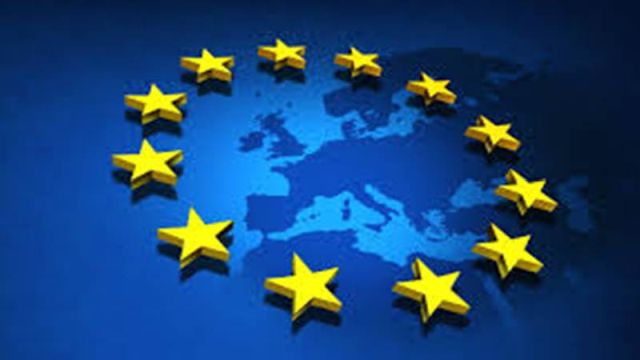
by Editor | May 25, 2021 | Opinions
 By Amit Kapoor,
By Amit Kapoor,
The usual brouhaha around the Budget strips the Economic Survey of the attention it deserves. The Survey document, especially since Arvind Subramanian has taken over as the Chief Economic Advisor, has consistently pushed the envelope on economic thinking, providing exciting new insights for the Indian economy. The latest one, released three days before the Budget, introduced a new phrase into economic jargon: The “late convergence stall”. It is a phenomenon that the Survey fears might affect the growth process of the developing world.
The basic argument is this. Economic convergence, which is the process of low-income countries catching up with richer ones in standards of living, has been taking place over the last few decades at an accelerated pace; something which economists like to call “convergence with a vengeance”. To be precise, countries were on a divergence path before 1997, a period of convergence from 1998 till the financial crisis in 2008 and an era of accelerated convergence post-crisis.
However, with changing global economic scenarios, it might be more and more difficult for developing countries to narrow the gap. In other words, the economies that have been rapidly climbing up the economic ladder might face a “late convergence stall”.
The threat of a convergence stall might result from the development of four challenges that were non-existent during the formative stages of the developed world. The first and the most crucial one is the end of rapid globalisation that benefitted the East Asian economies and even China. High levels of export growth rates of these countries have been drivers of their economic growth stories.
Developing nations that are late to the global scene cannot expect to achieve such export levels in the current inward-looking shifts in trade policy, especially across the developed world.
Subramanian always remains careful in stating that it is the era of “hyper-globalisation” (or rapid globalisation) which has come to an end, and not globalisation per se. However, globalisation, if defined as a period when trade among nations is growing faster than the global GDP growth, can be seen to be growing rapidly from 1950 till a few years after the economic crisis of 2008. During this period, growth in trade was close to five per cent while growth in world GDP was close to four per cent.
After 2010, growth in world trade levels has fallen below GDP growth, marking an era of de-globalisation (3.5 per cent economic growth against global trade growth of 2 per cent). Therefore, even though the Survey takes a conservative approach in claiming that globalisation has come to an end, the data shows that the world is, in fact, de-globalising.
It can be the case such low levels of trade might not hold once the world economic growth is running in full throttle, but the fact of the matter remains that the developing world cannot reap the same gains that were received in the later part of the 20th century. This could bring about the historical divergence that world economies had experienced throughout much of modern economic history. This trend was famously evidenced by Harvard’s Lant Pritchett in his paper “Divergence, Big Time” in which he showed that between 1870 and 1990, the richest and poorest countries have shown considerable divergence between their per capita incomes. Therefore, the convergence has only been a recent phenomenon. It would not be a surprise if it returned.
To make matters worse, other avenues of economic development that had been open earlier are also closing down. While industrial expansion was the most effective means of achieving economic successes for poor economies in the past, high productivity has implied that economies in current times reach the pinnacle of industrial employment much earlier on their growth path.
Turkish economist Dani Rodrik, also from Harvard, calls this “premature deindustrialisation” and shows how most of the developing world is affected by it. Therefore, resources which earlier used to shift from the low-productivity informal sector to high-productivity jobs, now usually shift to sectors that are only marginally more productive. The economic gains from a shift of labour across sectors are thus not derived to an extent that was true for the countries that are now high up on the income spectrum.
The case for a slowing down of convergence or divergence is, therefore, quite strong. The developing world needs to be prepared for any such restoration of the past economic trend. The advent of automation and similar technological innovations will further accentuate the problem because the richer countries will be more capable of deploying them for production on a mass scale. It is comforting to realise that the Indian government is well aware of the threat in advance, but it remains to be seen if this awareness is followed up with appropriate policy action.
The Economic Survey gets it right in recommending rapid improvements in human capital to sustain growth at current levels, but takes a defeatist approach in suggesting that India can do very little about diminishing globalisation. On the contrary, there remains immense scope for the country to play an enabling role in further integration of the global economic order. If the US is currently a lost cause, there remain other large markets like the EU and East Asia where India can further the cause of higher trade openness.
(Amit Kapoor is chair, Institute for Competitiveness, India. The views expressed are personal. He can be contacted at amit.kapoor@competitiveness.in and tweets @kautiliya. Chirag Yadav, researcher at Institute for Competitiveness has contributed to the article)
—IANS

by Editor | May 25, 2021 | Markets, Technology, World
 Brussels : The European Union (EU) has fined US smartphone chip supplier Qualcomm 997 million euros ($1.23 billion) for abusing its market dominance found illegal under EU antitrust rules, the European Commission said on Wednesday.
Brussels : The European Union (EU) has fined US smartphone chip supplier Qualcomm 997 million euros ($1.23 billion) for abusing its market dominance found illegal under EU antitrust rules, the European Commission said on Wednesday.
Qualcomm is the world’s largest supplier of long-term evolution (LTE) baseband chipsets, which enable smartphones and tablets to connect to cellular networks and are used both for voice and data transmission, Xinhua reported.
The Commission said Qualcomm illegally shut out rivals from the market for LTE baseband chipsets for over five years, thereby cementing its market dominance.
“Qualcomm paid billions of dollars to a key customer, Apple, so that it would not buy from rivals,” Margrethe Vestager, the EU Commissioner in charge of competition policy, was quoted as saying.
These payments were not just reductions in price; they were made on the condition that Apple would exclusively use Qualcomm’s baseband chipsets in all its iPhones and iPads, Vestager said.
In 2011, Qualcomm signed an agreement with Apple, committing to make significant payments to Apple on condition that the company would exclusively use Qualcomm chipsets in its iPhone and iPad devices. In 2013, the term of the agreement was extended to the end of 2016.
The agreement made clear that Qualcomm would cease these payments, if Apple commercially launched a device with a chipset supplied by a rival.
“This meant that no rival could effectively challenge Qualcomm in this market, no matter how good their products were. Qualcomm’s behavior denied consumers and other companies more choice and innovation and this is a sector with a huge demand and potential for innovative technologies. This is illegal under EU antitrust rules,” she added.
—IANS

by Editor | May 25, 2021 | Investing, World
 Paris : The European Union on Tuesday announced 9 billion climate finance contribution — the first major announcement made on the historic Paris Climate Change Agreement’s second anniversary — to achieve climate goals.
Paris : The European Union on Tuesday announced 9 billion climate finance contribution — the first major announcement made on the historic Paris Climate Change Agreement’s second anniversary — to achieve climate goals.
The Paris climate-relevant investments are in three targeted areas — sustainable cities, sustainable energy and connectivity and sustainable agriculture, rural entrepreneurs and agribusiness.
These targeted areas are expected to generate up to euro 9bn investments by 2020, Climate Action and Energy Commissioner Miguel Arias Canete announced at ‘One Planet Summit’, hosted by French President Emmanuel Macron here.
“The Paris Agreement and the UNFCCC climate convention remain the only pathway to tackle climate change and this One Planet Summit demonstrates how the financial system is aligning to the objectives of the agreement,” UN Climate Change Executive Secretary Patricia Espinosa said in a statement.
In a related announcement, 225 of the most influential global institutional investors with more than $26.3 trillion in assets under management launched a new collaborative initiative to engage with world’s largest corporate greenhouse gas emitters so these companies step up their actions on climate change.
The initiative, known as Climate Action 100+, led and developed by investors and supported and coordinated by five partner organisations from around the world, was launched on the second anniversary of the Paris Agreement.
Betty T. Yee, a board member of California Public Employees’ Retirement System (CalPERS), the largest US public pension fund and a participant in Climate Action 100+, made the announcement during a panel discussion at the summit.
Canete said that the EU’s External Investment Plan, with its focus on sustainable development and the low-emission and climate-resilient transition, will scale up much-needed investments across Africa and the EU neighbourhood, adding that the benefits would be multiple: new jobs, accelerated and sustainable growth, enhanced resilience to climate change impacts, improved health, poverty reduction and better connectivity.
International Cooperation and Development Commissioner Neven Mimica said that these priority areas are setting the agenda for sustainable investments, and unlocking the potential of sustainable energy, promoting digitalisation for development or supporting micro, small and medium sized enterprises will help create sustainable development and reduce poverty.
The Paris gathering took place less than a month after the successful conclusion of the November UN Climate Change Conference in Bonn (COP23) and was the first in a series of international summits to help countries to raise ambition and bolster their national climate action plans – crucial to achieve the Paris Agreement’s goals.
Next year, California, the UN and other key partners will host another major conference to fast forward action ahead of the UN Climate Conference 2018 in Poland (COP24), and a summit to raise ambition will be convened by the UN Secretary General in 2019.
At the ‘Planet One Summit’, another 237 companies with a combined market capitalization of over $6.3 trillion publicly committed to support the Task Force on Climate related Financial Disclosures (TCFD).
This includes over 150 financial firms, responsible for assets of over $81.7 trillion.
The Task Force, led by Michael R. Bloomberg and established by the Financial Stability Board (FSB),chaired by Bank of England Governor Mark Carney, developed voluntary recommendations on climate-related information that companies should disclose to help investors, lenders, and others make sound financial decisions.
The companies and organizations supporting the TCFD, which have more than doubled in number in the five months since the recommendations were published in June 2017, span the entire capital and investment chain.
“Climate change poses both economic risks and opportunities. But right now, companies don’t have the data they need to accurately measure the risks and evaluate the opportunities. That prevents them from taking protective measures and identifying sustainable investments that could have strong returns,” Bloomberg said, adding that the Task Force’s recommendations will help change that by empowering companies to measure and report risks in a more standardized way.
In a sign of the financial industry’s growing concerns over the climate and business risks of fossil fuels, French insurance giant AXA announced at the summit that it will cease insuring the tar sands sector and new coal projects, and will divest over 3 billion euros from tar sands and coal companies.
Tar sands oil is one of the dirtiest fuels on the planet and environmental and indigenous rights groups in Canada, the US and Europe are urging financial institutions to stop supporting it because of its climate and local environmental impacts.
In October, France’s largest bank BNP Paribas announced that it would stop funding tar sands projects and companies.
—IANS

by Editor | May 25, 2021 | World
 Brussels : Despite continuous efforts and growing common grounds of Britain and the European Union (EU), it was not possible to reach a complete agreement Monday, said EU Commission President Jean-Claude Juncker in a hastily arranged press conference with visiting British Prime Minister Theresa May.
Brussels : Despite continuous efforts and growing common grounds of Britain and the European Union (EU), it was not possible to reach a complete agreement Monday, said EU Commission President Jean-Claude Juncker in a hastily arranged press conference with visiting British Prime Minister Theresa May.
“This is not a failure. This is the start of the very last,” he was quoted as saying.
Extending EU’s deadline by pledging to resume their talks later this week, he added.
Calling May as a tough negotiator in his two-minute briefing, Juncker said he is confident that sufficient progress could be reached before the EU summit slated for December 15.
Echoing Juncker’s optimism, May told reporters in her one-minute speech that “we will conclude this positively.”
“Crucially it is clear that we want to move forward together, but on a couple of issues, differences do remain, which require further negotiation and consultation,” said May before heading to meet President of the European Council Donald Tusk almost one-hour late than scheduled.
Prior to May’s Brussels trip, expectations were high for breakthroughs on three major Brexit issues, namely the divorce bill, Irish border and citizen’s rights.
—IANS

by Editor | May 25, 2021 | Markets, Networking, Social Media, Technology, World
 London : The European Union’s data regulator group has rapped WhatsApp for the “take it or leave it approach” it has taken regarding sharing of user data with the parent company Facebook.
London : The European Union’s data regulator group has rapped WhatsApp for the “take it or leave it approach” it has taken regarding sharing of user data with the parent company Facebook.
The EU data regulator has launched a taskforce to implement “a clear, comprehensive resolution” to comply with EU law, the Guardian reported on Thursday.
The taskforce has been set up by the pan-European data regulator, the Article 29 Working Party (WP29), a year after it first issued a warning to the chat app over its sharing of user data with the wider group of Facebook companies, forcing it to pause data transfer.
WhatsApp changed its privacy policy last year to start sharing users’ phone numbers and other information with Facebook.
The change drew widespread regulatory scrutiny across Europe.
The scrutiny focused on the requirement for users to consent to the sharing of data and the level of information provided for them to make an informed choice.
In a letter sent to WhatsApp this week, WP29 said the company had still not resolved its concerns about getting user consent for the data sharing.
The regulators said that the information given to users about the privacy policy update was “seriously deficient as a means to inform their consent”.
The group said the “take it or leave it approach”, which mandated users who disagreed should simply stop using the service did not constitute freely given consent, while pre-ticked boxes did not constitute unambiguous consent, the Guardian report said.
—IANS






